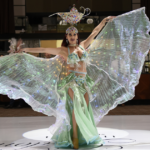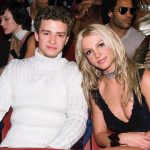In a world brimming with celebrity-owned beauty brands, the question arises: Do global celebrity fragrances still hold a significant place in the beauty market? With the celebrity-owned beauty brand era in full swing, it’s evident that actors and musicians have evolved into the original influencers. These celebrities have transitioned from mere collaborators to building their own beauty empires. However, amidst the surge of makeup and skincare brands, the question lingers: Are celebrity fragrances still relevant?
One might wonder why this question arises, considering the long-standing association between celebrities and the beauty industry. In the early 2000s, there was an unprecedented wave of global celebrity fragrances that dominated the market. Icons like Jennifer Lopez introduced her ever-popular “Glow by JLO,” while Britney Spears debuted her cult-favorite “Fantasy by Britney Spears.” Undeniably, these fragrances left an indelible cultural impact. But the situation is more intricate than it appears.
There’s an undeniable allure to celebrity-named fragrances, akin to Taylor Swift’s “Wonderstruck Eau de Parfum,” whose name exudes a strong and aspirational quality. These scents resonate with enthusiasts, providing an accessible and effective means for fans to connect with their favorite celebrities. It transcends the realm of luxury or designer items, delivering a more personal touch.
The concept of celebrity fragrances extends beyond sales figures; it symbolizes a form of status for artists. It authentically mirrors their selling power and influence in an industry that may lie beyond their natural expertise. However, in the ever-evolving landscape of consumer behavior, does a celebrity name suffice to ensure success?
Surprisingly, fragrances associated with international celebrities continue to thrive. Ariana Grande’s “Cloud Fragrance” impressively raked in $150 million in global sales by 2017, while Billie Eilish’s eponymous perfume sold out within hours on its release day. Recently, Beyoncé, one of the pioneers in this space, announced the forthcoming launch of her fragrance, “Cé Noir.”
This undeniable success indicates that the celebrity fragrance culture shows no signs of waning. Nevertheless, as times change, is merely slapping a celebrity name on a bottle sufficient for effective marketing? The short answer is no. With a new generation of consumers less swayed by brand recognition, there’s a growing demand for authenticity, inclusivity, and sustainability. A captivating olfactory composition is just the starting point. Today’s consumers seek evidence of celebrities’ genuine involvement in the creation of these fragrances, viewing it as an extension of their passion rather than a mere monetization tool.
The key takeaway from this shift in consumer behavior toward celebrity fragrances underscores the importance of establishing an authentic connection between a brand and its audience. The challenge now lies in creating a relatable, inclusive, and sustainable entry into the beauty industry without compromising the brand’s aspirational and inspirational qualities. As you explore the world of celebrity fragrances, draw inspiration from these five scents fronted by beloved celebrities.








